If you’re planning to add a cedar fence in Tennessee to your property, you’re likely wondering the same thing most homeowners do: “How long will it really last?”
Short answer: In Tennessee’s climate, a well-built and properly maintained cedar fence typically lasts 15 to 25 years. Without sealing or maintenance, however, that lifespan can drop to just 8–12 years, especially given the region’s humidity, rain, and freeze-thaw cycles.
But the true story is a bit more nuanced. Cedar can last decades in Tennessee, but only if it’s installed correctly, cared for regularly, and adapted to local soil and weather conditions.
Let’s break it down.
Why Cedar Is a Popular Choice in Tennessee
Cedar has become the go-to wood for Nashville-area fences, and for good reason.
Its natural oils make it resistant to rot, decay, and insect damage, which are constant challenges in the humid Southeast.
Unlike pressure-treated pine, which can warp or twist over time, cedar tends to remain straight and stable. It also weathers beautifully, developing a silvery-gray patina if left unstained, perfect for homeowners who want a natural, rustic aesthetic.
There are two main types of cedar commonly used in Tennessee fencing:
- Western Red Cedar – prized for its rich color, durability, and aromatic qualities.
- Japanese Cedar (Cryptomeria) – lighter in color but still naturally resistant to rot.
Either option, when installed and sealed correctly, can stand up impressively to Middle Tennessee’s climate.
How Long a Cedar Fence Really Lasts in Tennessee
You’ll often read that cedar fences last 15 to 30 years. That’s true, but only in theory. In Tennessee’s environment, where humidity lingers and clay soil traps moisture, those numbers need a little adjusting.
Here’s a realistic range based on conditions:
| Condition | Expected Lifespan |
| Unsealed or neglected cedar | 8–12 years |
| Sealed, cleaned, and maintained regularly | 15–20 years |
| Professionally installed with premium materials and routine care | 20–25 years+ |
The key variable is moisture exposure. In neighborhoods like Franklin and Brentwood, where clay soil retains water, unprotected fence posts can rot prematurely if not properly set or sealed.
Cedar holds up well naturally, but it’s not invincible. The combination of rain, sun, and occasional winter freezes slowly breaks down even the best boards without protection.
What Affects Cedar Fence Longevity
1. Installation Quality
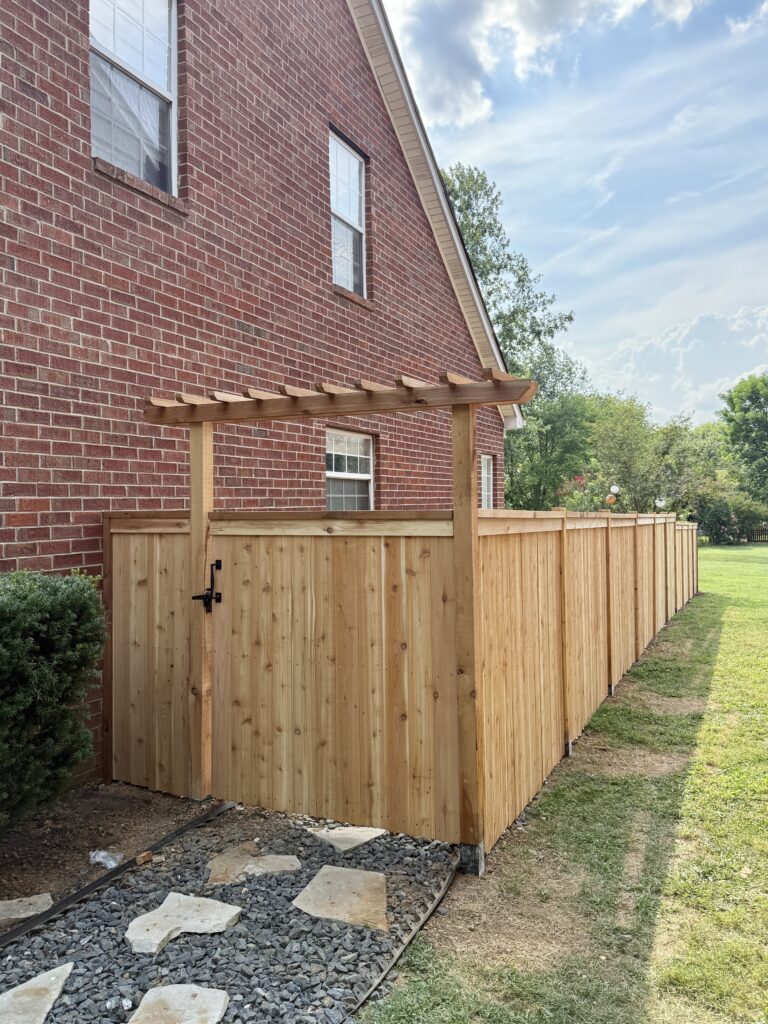
No matter how good the wood is, poor installation can cut your fence’s life in half.
In Tennessee’s dense clay soil, posts need to be set at least 24–36 inches deep, ideally in gravel or high-strength concrete for drainage.
If they’re placed too shallow or directly into wet ground, rot can start from below, often the first point of failure.
Using galvanized or stainless-steel fasteners is equally important. Ordinary nails or screws can rust, leaving streaks and loosening boards over time.
A skilled local contractor will also ensure your fence has proper spacing between boards for air circulation, one of the most overlooked details that affects longevity.
2. Climate Exposure
Tennessee weather is beautiful, but tough on wood.
- Humidity encourages mold and mildew growth.
- Frequent rain means longer moisture contact on posts and rails.
- Hot summers and cold winters cause cedar to expand and contract, stressing joints and fasteners.
Even the sun plays a role. Constant UV exposure fades color and dries the wood, leading to surface cracks if not sealed.
If your fence is installed in a low-lying area, under trees, or near sprinklers, expect higher moisture retention, and a shorter lifespan unless drainage and cleaning are handled properly.
3. Maintenance Routine
Cedar doesn’t require intensive upkeep, but it does require consistent attention.
To maximize its life:
- Seal or stain every 2–3 years. Use a UV-resistant, oil-based sealant that allows the wood to breathe.
- Wash annually. Remove dirt, mildew, or algae with a mild detergent and low-pressure rinse.
- Inspect for damage. Tighten hardware, replace cracked boards, and trim vegetation that traps moisture.
A little maintenance goes a long way. Think of it like servicing your car, small efforts now prevent costly overhauls later. And if you’re planning to conduct DIY repairs then here are some fence repair tips for Nashville homeowners.
How to Extend the Life of Your Cedar Fence
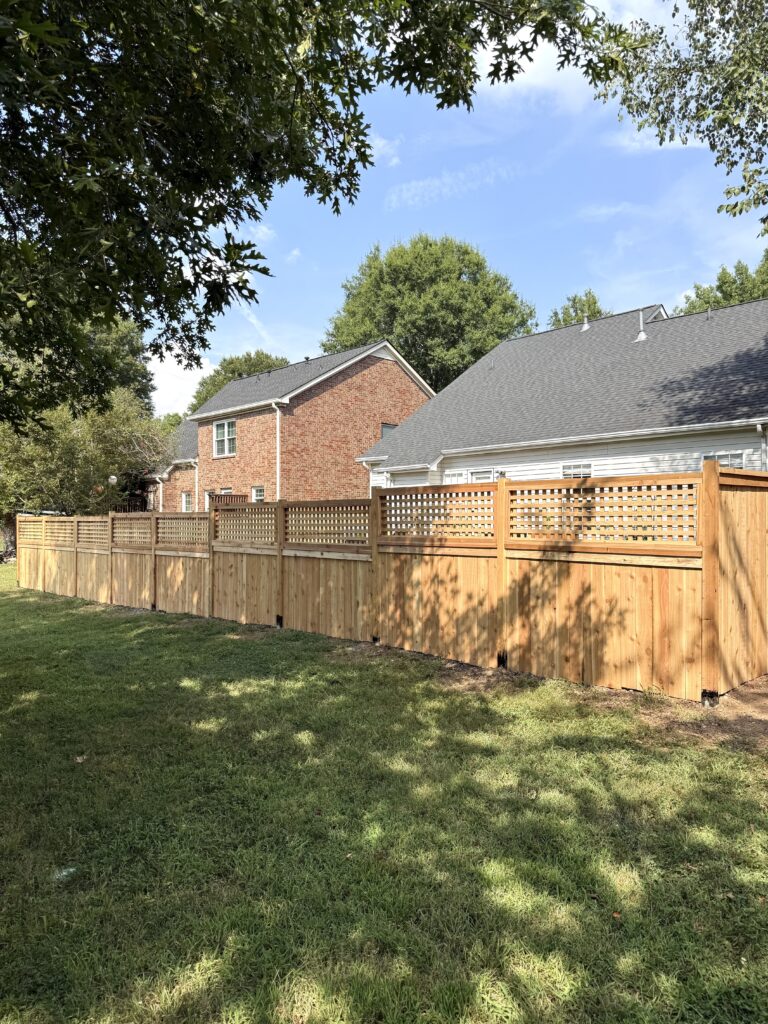
For homeowners across Middle Tennessee, extending your cedar fence’s life isn’t complicated, it’s about protecting it from the region’s biggest threats: moisture, UV rays, and shifting soil.
Here’s how to keep it performing like new:
- Apply a high-quality sealer or stain within a few weeks of installation (and reapply every few years).
- Leave a 2-inch gap between the bottom rail and soil to avoid constant moisture exposure.
- Add gravel at the base of each post for drainage.
- Clean your fence once or twice a year, especially after spring pollen or fall rains.
- Avoid sprinklers or pressure washing directly on the boards.
- Schedule a quick annual inspection tightening fasteners and checking gate alignment.
Pro tip: The best times for sealing cedar in Tennessee are spring and early fall, when humidity levels are moderate and temperatures stay below 85°F, perfect for even application and better absorption.
When It’s Time to Repair or Replace
Even with great care, every fence eventually shows its age.
You’ll know your cedar fence needs attention when:
- Posts start softening at the base.
- Boards warp or detach despite tightening.
- The color turns dull gray and won’t restore after cleaning.
At this stage, replacement might be more cost-effective than repeated spot repairs.
However, cedar is one of the few materials that ages gracefully, even older fences can be revived through sanding, re-staining, or replacing a few key panels.
A seasoned contractor can inspect your fence and advise whether a partial rebuild will buy you another decade, or if full replacement is the smarter long-term investment.
The Bottom Line: Cedar Is Built for Tennessee
Cedar remains one of the best fencing materials for Middle Tennessee homes, beautiful, resilient, and sustainable.
When installed correctly and maintained regularly, it easily outperforms cheaper wood options, both in looks and lifespan.
At Heron Building Co, we’ve built cedar fences across Nashville, Franklin, and Belle Meade that still stand strong after decades.
From the post depth to the sealer choice, every detail is designed for local conditions, humid summers, clay soil, and all.
Thinking about adding a cedar fence to your property? Contact Heron Building Co for a free estimate consultation, we’ll help you design a fence that’s not only beautiful today but built to last through Tennessee’s seasons.
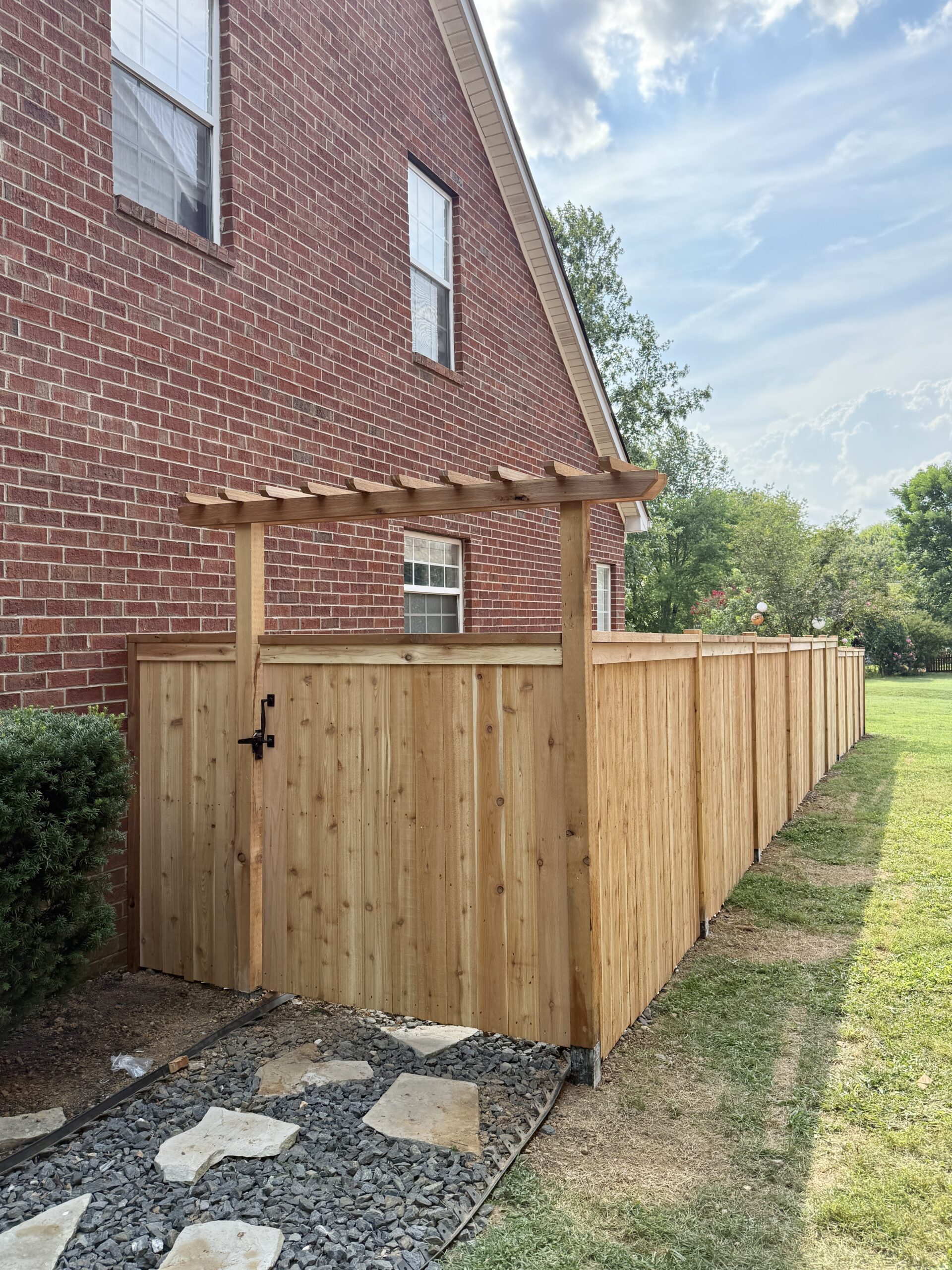
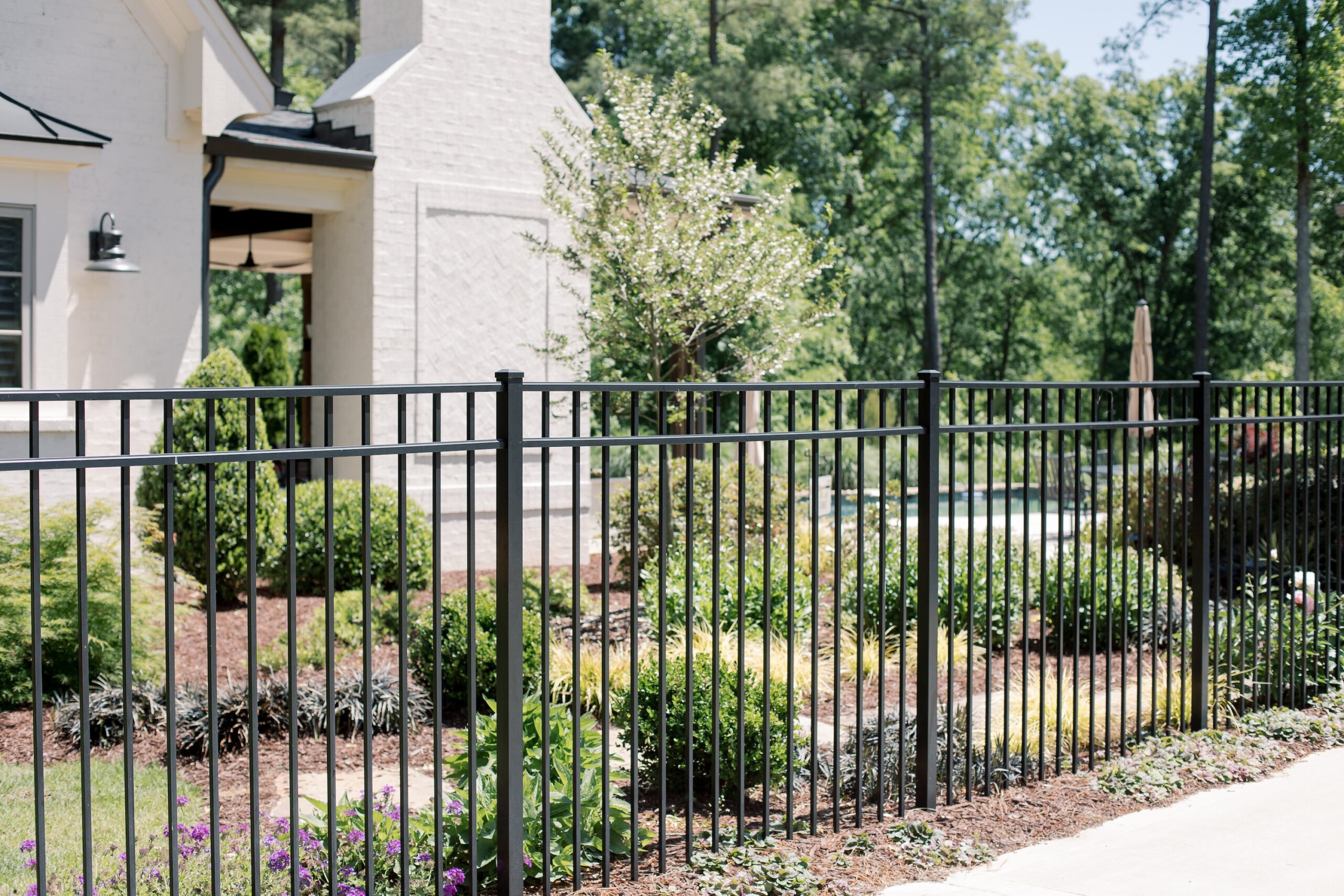
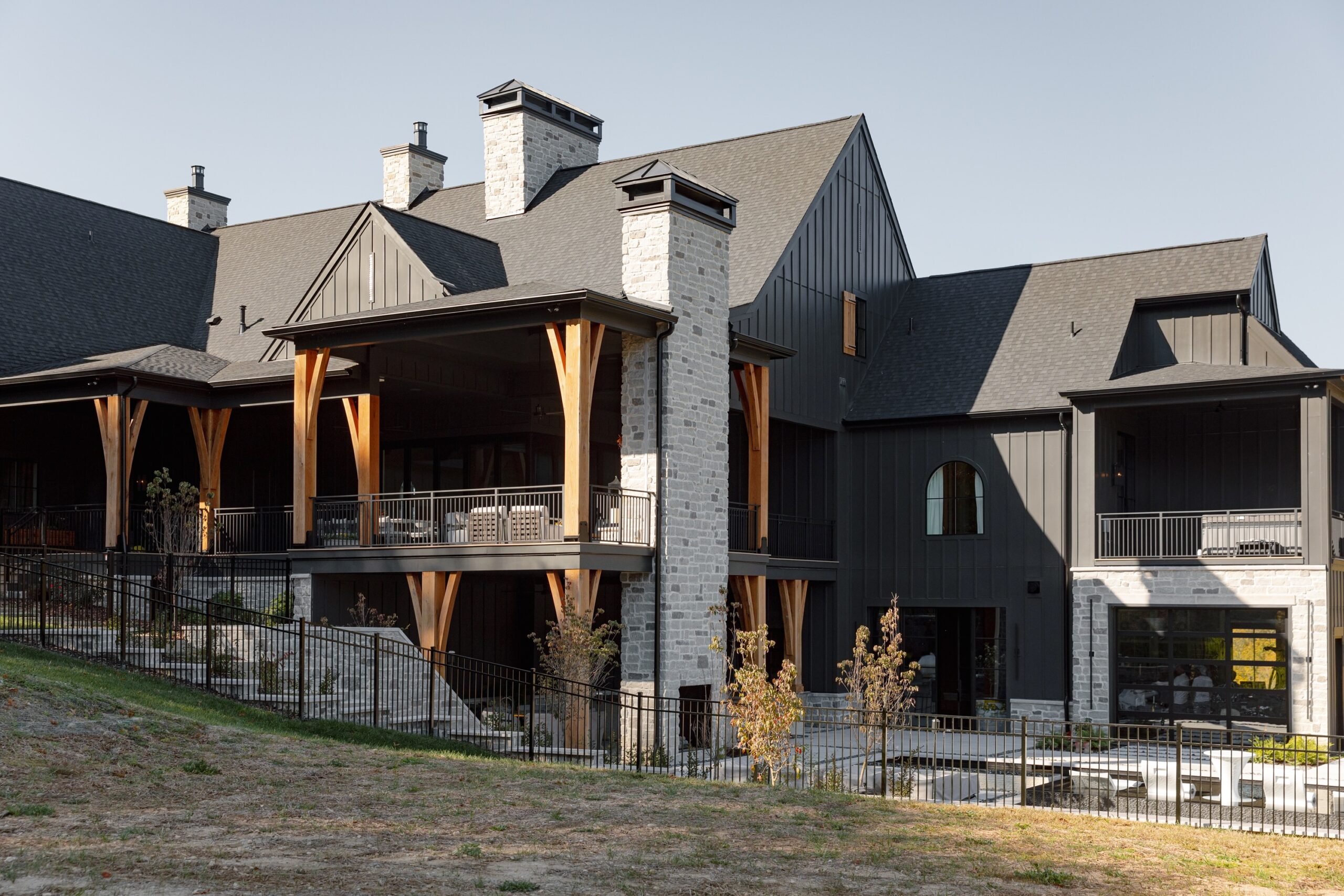

Comments +